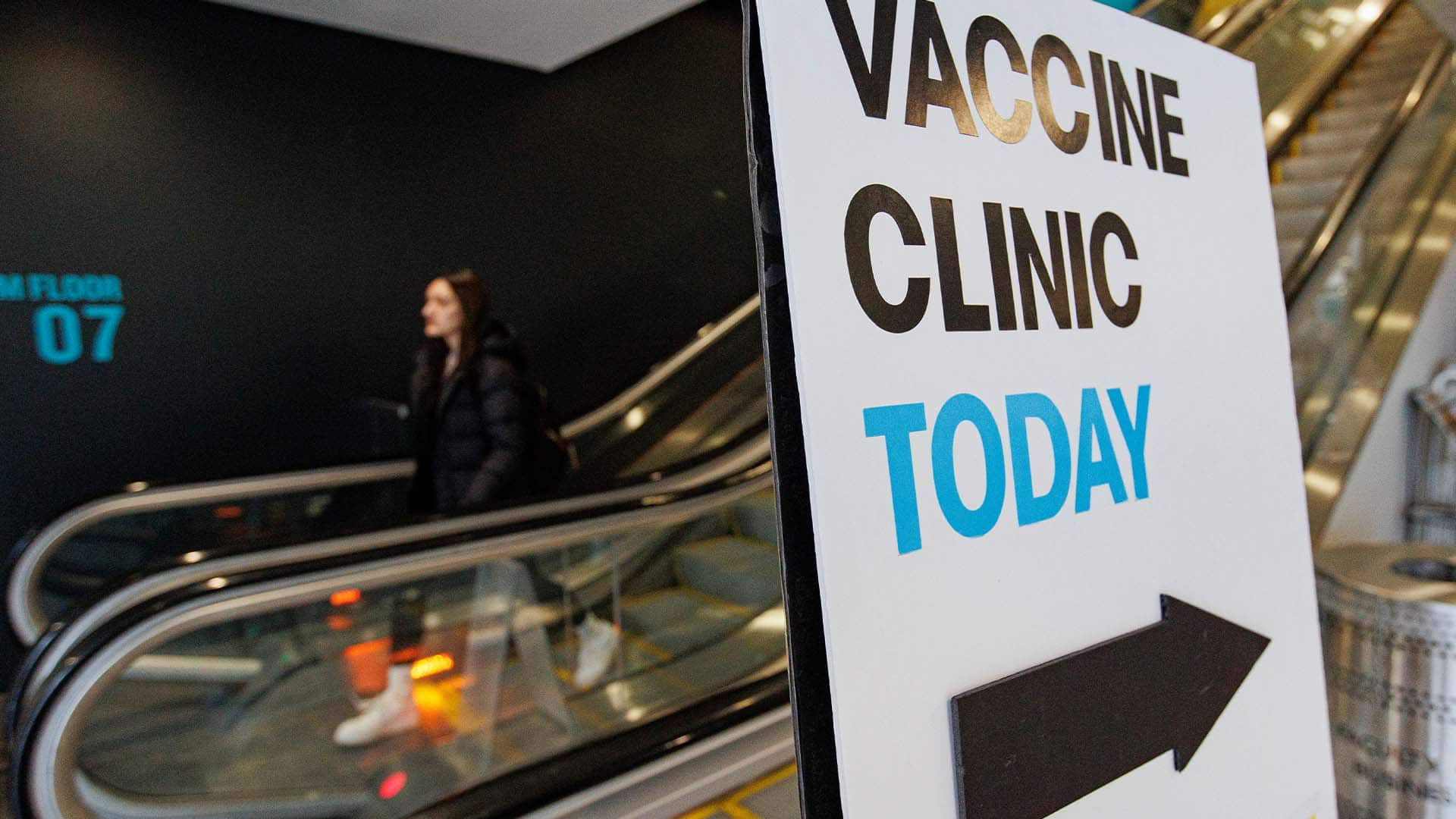AstraZeneca says it is withdrawing Vaxzevria, its vaccine to protect against COVID-19, from global markets. The vaccine was used early on in the pandemic in many countries, including Canada.
In an update on the European Medicines Agency’s website on Wednesday, the regulator said that the approval for Vaxzevria had been withdrawn “at the request of the marketing authorization holder.”
More than three billion doses of the vaccine have been supplied since it first was administered in the United Kingdom in January 2021.
AstraZeneca said as multiple vaccines against newer variants of the pandemic coronavirus have been developed, there is a surplus. Demand for Vaxzevria declined and the company said it is no longer being manufactured or supplied.
Dr. Samir Gupta, a respirologist at St Michael’s Hospital in Toronto, said what’s important is that the creation of the AstraZeneca vaccine, testing, roll out, discovery of complications and stopping of vaccine distribution played out as it should for a new pandemic virus.
It’s been four years since COVID-19 was declared a pandemic, and new research suggests your age may determine how often you should get a booster shot.
According to media reports, AstraZeneca previously admitted in court documents that the vaccine can cause rare side-effects such as blood clots and low blood platelet counts.
“Ultimately we can’t forget that the virus is worse than the vaccine, even with this complication,” Gupta said in an interview on CBC News Network.
AstraZeneca’s application to withdraw the vaccine was made on March 5 and came into effect on May 7, according to the Telegraph, which first reported the development.
The Serum Institute of India (SII), which produced AstraZeneca’s COVID-19 vaccine under the brand name Covishield, stopped manufacturing and supply of the doses since December 2021, an SII spokesperson said.




